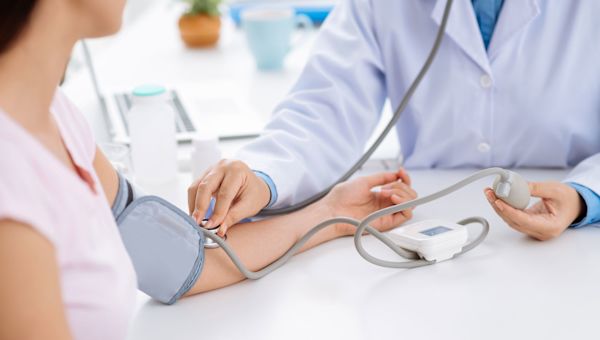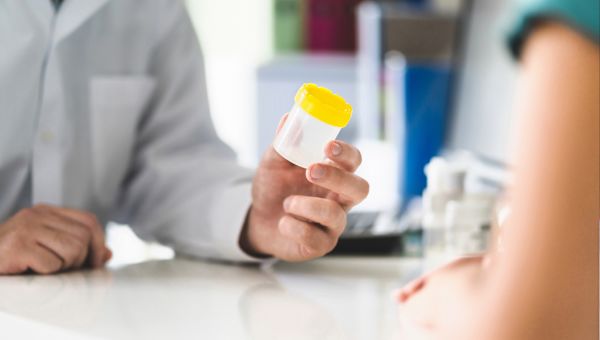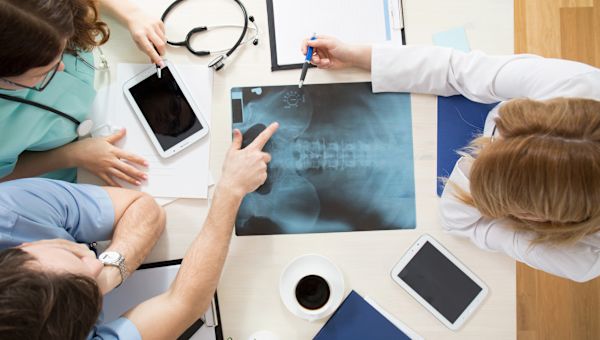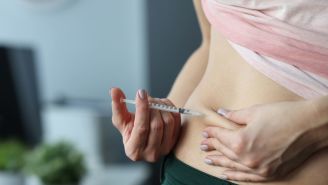8 essential health screenings for women
Learn how to take an active role in protecting your health with these 8 essential health screenings.
Updated on January 8, 2026

Health screenings can help detect serious issues early on. They’re also an essential way to access information to maintain and improve your health at every stage of your life.
Here are eight screenings to have on your radar—plus, recommendations on when these tests should begin and how often they should be repeated.
Correction: A previous version of slide 5 reported that mammograms are performed annually or every other year without specifying that screening mammography is for people at average risk of breast cancer. The text was amended to include reference to average risk and to note that people at high risk should begin screening at an earlier age.

Cholesterol and blood pressure
High blood pressure and high cholesterol can increase the risk for heart disease and stroke. Neither medical issue shows outward symptoms, which is why screening is critical.
- Blood pressure should be checked at least every year. It may be checked more often if you’re at risk for heart disease or your healthcare provider (HCP) recommends it.
- Cholesterol should be checked every four to six years. People at higher risk for heart disease due to age, weight, lifestyle habits, diabetes, or family history of high cholesterol may need to be screened more frequently.
Exercise, a healthy diet, and medication (if needed) can help lower cholesterol and blood pressure levels.
Keep an eye on your blood pressure by recording the systolic (upper number) and diastolic (lower number) readings in a tracker, like Sharecare for iOS and Android. It can let you know if your blood pressure is healthy and help you track changes over time.

Cervical cancer
The American Cancer Society (ACS) recommends that screening for cervical cancer start at age 25. They suggest women between age 25 and 65:
- Get a United States Food and Drug Administration-approved “primary” HPV test every five years, or
- If a primary test is not available, get an HPV/Pap co-test every five years, or get a Pap test by itself every three years
The American College of Obstetricians and Gynecologists recommends that women between the ages of 21 and 29 have a Pap test alone every three years. Starting at age 30, their recommendations are the same as the ACS.
“What we’re trying to do is educate women that they don’t need a Pap smear every year,” says Matthew Breeden, MD, an OBGYN in Denver, Colorado.
Cervical cancer screening is not recommended for women older than age 65 who have been screened for the disease routinely and are not at high risk, according to the U.S. Preventive Services Task Force (USPSTF).
It’s important to note: People with risk factors such as prior cervical cancer treatment may be advised to have more frequent exams. This includes those ages 65 and over.

Sexually transmitted infections (STI)
Sexually transmitted infections (STIs) aren’t exclusive to young people. If you have unprotected sex with a new partner or more than one partner, you’re at risk and should talk to your HCP about being tested. It’s important to share your sexual history with your OBGYN—even if your HCP doesn’t ask about it.
Sexually active women younger than 25 should be tested annually for chlamydia and gonorrhea, according to the Centers for Disease Control and Prevention (CDC). You may require tests for other STIs, as well. How STI tests are performed depends on the infection for which you’re being screened. They may involve a blood test, urine sample, or swab from your mouth, genitals or other affected area.

Breast cancer
A mammogram is a type of X-ray used to examine your breasts. It can show changes that may indicate signs of cancer. Mammograms are good at detecting early stages of breast cancer, often before people experience symptoms. The earlier the disease is detected, the better the odds of successful treatment.
For people at average risk of breast cancer, mammograms are performed annually or every other year, typically beginning between the ages of 40 and 50. (People at high risk will begin screening at an earlier age.) The American Cancer Society (ACS) recommends starting yearly mammograms at age 45, with the option to begin at 40. The USPSTF recommends getting mammograms every other year starting at age 40 and continuing until the age of 75. If you are ages 40 or older, talk with your HCP to make an informed decision about when you should begin and how often to get your mammograms thereafter.

Depression
Screening for depression is recommended by many health organizations. But it’s still one of the most under-diagnosed and undertreated mood disorders—and women are roughly twice as likely as men to be diagnosed. Adolescent girls are at especially high risk.
It’s important to know the signs of depression, such as prolonged sadness, fatigue, and losing interest in activities you previously enjoyed. It’s also critical to talk to your HCP or a mental health specialist about these symptoms.
Testing for depression may include:
- Answering a series of questions
- A possible physical exam
- Blood tests to rule out other conditions
Depression screenings for pregnant people and those with newborns are the norm, Dr. Breeden notes. “It’s usually done once or twice during the pregnancy, and certainly a screening is done before the parent leaves the hospital,” he adds.

Diabetes
About 1 in 10 women in the United States have been diagnosed with diabetes. People ages 35 and older should be tested for the condition. Younger people with risk factors for diabetes should also have their blood sugar (glucose) levels checked. These risk factors include obesity, a family history of the disease, and a history of gestational diabetes (diabetes during pregnancy).
A blood test may also reveal prediabetes, or elevated blood sugar levels not high enough to qualify as full-fledged diabetes. People with prediabetes are at higher risk for type 2 diabetes, heart disease, and stroke.
Tell your HCP if you experience signs of diabetes, including fatigue, blurry vision, or extreme thirst.

Colorectal cancer
Colorectal cancer affects the rectum and colon. The American Cancer Society and USPSTF advise those at an average risk for the disease to begin screening at age 45.
A colonoscopy is one of the most common procedures used for this purpose. For the exam, a specialist uses a long, flexible tube with a light and small camera at the end to look for abnormalities like polyps. Polyps are growths that can become cancerous over time. One advantage of a colonoscopy over other, less invasive tests is that suspicious polyps can be removed during the procedure if necessary.
Colonoscopy screenings are recommended once every 10 years for someone at average risk. For those with a family or personal history of colorectal cancer, they may be recommended more frequently.
Other screening options include CT (virtual) colonoscopy, flexible sigmoidoscopy, and at-home stool tests, which may have to be performed more frequently. Speak with your HCP about the best option for you.

Bone loss
The standard bone density test is known as dual-energy X-ray absorptiometry (DXA or DEXA). It is used to measure bone loss in your hips and spine and to diagnose osteoporosis. When bone density decreases, your risk of fracture increases.
Women aged 65 and older should have a bone density test. Those who may need an earlier screening include women who smoke, have a low body weight, consume three or more alcoholic drinks daily, or have a parent who broke a hip at any age. Women aged 50 and older may need screening if they’ve fractured a bone after a mild trauma—in other words, an event that probably shouldn’t have caused the bone to break.
Detecting weakened bones or bone loss may indicate a need for lifestyle changes to help improve bone health. These can include getting more calcium in your diet, exercising regularly, and quitting smoking.

Office of Disease Prevention and Health Promotion. Get Your Blood Pressure Checked. May 1, 2025.
American Heart Association. Heart Health Screenings. January 16, 2024.
National Heart, Lung, and Blood Institute. Get Your Blood Pressure and Cholesterol Checked. March 24, 2022.
National Heart, Lung, and Blood Institute. Blood Cholesterol: Diagnosis. April 18, 2024.
Centers for Disease Control and Prevention. Testing for Cholesterol. May 15, 2024.
American Cancer Society. The American Cancer Society Guideline for Cervical Cancer Screening. December 4, 2025.
American College of Obstetricians and Gynecologists. Cervical Cancer Screening. March 2025.
Centers for Disease Control and Prevention. Getting Tested for STIs. January 31, 2025.
American Cancer Society. American Cancer Society Recommendations for the Early Detection of Breast Cancer. December 19, 2023.
United States Preventive Services Task Force. Breast Cancer Screening. April 30, 2024.
Salk RH, Hyde JS, et al. Gender differences in depression in representative national samples: Meta-analyses of diagnoses and symptoms. Psychol Bull. 2017 Aug;143(8):783-822.
Mayo Clinic. Depression. January 29, 2019.
Centers for Disease Control and Prevention. National Diabetes Statistics Report. May 15, 2024.
Centers for Disease Control and Prevention. Prediabetes – Your Chance to Prevent Type 2 Diabetes. May 15, 2024.
Centers for Disease Control and Prevention. Additional 12 Million US Adults Eligible for Diabetes Screening. May 15, 2024.
American Diabetes Association Professional Practice Committee. 2. Diagnosis and Classification of Diabetes: Standards of Care in Diabetes-2025. Diabetes Care. 2025 Jan 1;48(1 Suppl 1):S27-S49.
American Cancer Society. ACS Recommendations for Colorectal Cancer Screening. January 29, 2024.
American Cancer Society. Colorectal Cancer Screening Tests. October 15, 2025.
United States Preventive Services Task Force. Colorectal Cancer Screening. May 18, 2021.
Centers for Disease Control and Prevention. Screening for Colorectal Cancer. February 26, 2025.
UCSF Radiology. Bone Density Scan (DXA or DEXA). Accessed January 8, 2026.
United States Preventive Services Task Force. Osteoporosis to Prevent Fractures: Screening. January 14, 2025.
Jeremiah MP, Unwin BK, et al. Diagnosis and Management of Osteoporosis. Am Fam Physician. 2015 Aug 15;92(4):261-8.
Cleveland Clinic. Calcium Rich Foods. May 2, 2022.
More On


video

article

slideshow


video


video
